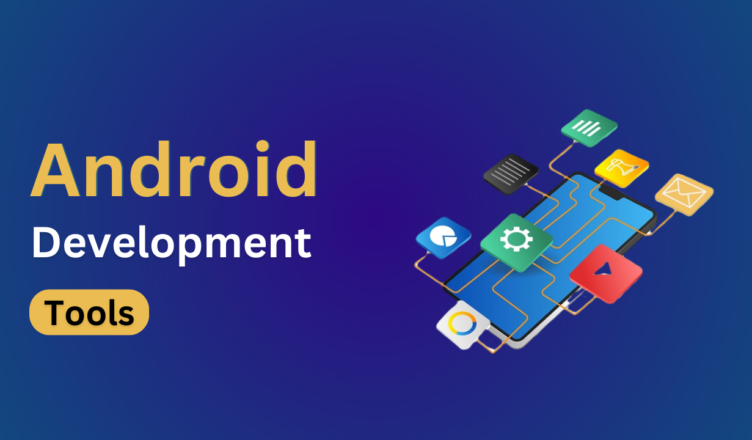Let’s discuss about some lesser known things about software development tools!
Sometimes tools helps us do the work faster. Sometimes they bridge the gap in between development and DevOps. Sometimes they act as a helping hand in between programming languages and methodology that developers wish to use.
An impromptu reply that development tools make a developer’s lie easier would be an injustice to the features and qualities they tag along with in the life cycle of a project.
If you ask me a tool for uploading a text file to a Bucket in the cloud app would be different from the tools required in cloud development, managing permissions, bucket identities, packaging runtime code, handling multiple files for infrastructure and runtime add layers of complexity to the development process.
Before implementing any tool within your processes, read their open source reports. GitHub documentation, syntax, applicability, dependencies, complexity and compatibility – and availability, performance and support that that tool brings during application upgrade, changes or bugs that affect the project.
Development Tools for Android Apps
Tools for Android app development let developers (1) design, (2) build, (3) test, (4) deploy, and (5) optimize their apps, (6) Build quickly. These tools are being used by everyone wanting to code on Android platform; the level of coding knowledge depends on the type and complexity of the app.
Types
DevOps and cloud development are often used together in a flexible and agile environment called Cloud DevOps. DevOps methods are well suited to the rapid, ongoing processes that are a key benefit of cloud operations. DevOps and cloud development use different tools, but they are often used together:
- DevOps: DevOps tools automates processes between software development and IT teams. E.g.: Tools for continuous integration: Travis CI, GitLab, CircleCI, and Jenkins.
- Development on cloud: It includes tools for automated testing, such as Gherkin and Jasmine. Cloud development enables simultaneous development and collaboration between teams across the globe.
Essential Resources for Developing Android Applications
Listing out 10 best Android app development tools, or 10 best tools for iOS development cannot be justified, without discussing about the stages for which they are being used. Software development process starts with (1) communication, (2) requirement gathering, (3) feasibility study, (4) system analysis, (5) system analysis, (6) software design, (7) coding, (8) testing, (9) integration, (10) implementation, (11) operation and maintenance.
- Tools used during Communication: Slack, Microsoft Teams
- For Requirement Gathering: Jira, Trello
- Within Feasibility Study: Google Sheets, Lucidchart
- For System Analysis (Planning Phase): Enterprise Architect, Rational Rose
- To accomplish Software Design: Android Studio, Sketch or Adobe XD
- During Coding: Android Studio, Visual Studio Code
- For Testing: Android Studio, Firebase Test Lab
- While Integration: Jenkins, GitLab CI/CD
- To Implement: GitHub or GitLab, FastLane
- For Operation and Maintenance: Firebase, Google Play Console
Tools across different categories:
- As Language resources: Java Documentation, Kotlin Docs, Android developer Guides
- As Editors and IDE’s: Android Studio, IntelliJ IDEA, Visual Studio Code
- As Libraries: Android Jetpack, RxJava, Glide
- As YouTube Tutorials: Coding in Flow, Traversy Media, the Net Ninja
- As Plugins: Butter Knife, Dagger 2, Realm Database
In short, how should you choose the right tools for android app development?
The right tools for Android app development depend on the app’s type, target platforms, and other parameters:
- Android Studio: A common choice for native Android apps, created by Google and JetBrains. It also supports cross-platform development using Flutter.
- React Native: An open-source framework developed by Facebook that allows developers to build apps for both Android and iOS using the same codebase.
- Flutter: A powerful SDK that allows developers to build cross-platform apps for Android and iOS.
- Eclipse: A well-known tool that offers a separate codebase environment and tools for customizing app development projects.
- Ionic: A tool that allows developers to build native-looking mobile apps that adapt well across various platforms.
- Android Debug Bridge (ADB): A line of communication between Android devices and other computers that developers use for QA and testing purposes.
- Android SDK: Provides essential tools such as libraries, debugger, emulator, documentation, sample codes, and tutorials.
- Xamarin: A tool that comes with a range of tools to create, test, and deploy Android apps, including debugging tools, cloud-based integrations, and a visual designer.
- Corona SDK: A 2D game engine that supports cross-device and system compatibility.
- Sencha: A Rapid mobile app development tools that allows developers to create native apps compatible with the latest versions of iOS and Android.
There are many more app development tools to remember, but why and where they should be used is a point of cognizance:
- Android app development languages: Kotlin, Java, Flutter
- IDE’s: Android Studio, Apache Cordova, Komodo edit, Omnis Studio, C++ Builder, WinDev Mobile, Visual Studio, Eclipse, Android Development Toolkit, Rider, WinDev, IntelliJ IDEA, NetBeans, MIT App Inventor, Android SDK, and GeneXus
- Libraries: Jetpack, RxJava, Glide
- Android Plugins: Rainbow Brackets, Android Drawable Importer, Flutter, JsonHelper, String Manipulation, Android Holo Colors Generator
Side Note: Android Integrated Development Environment enables developers to create apps with Java/XML; it allows building Android SDK with C/C++; Android NDK is built with pure Java console applications.
As we conclude,
Performance, ease of use, community support, and the ability to meet the specific requirements of the intended application are some reasons that any Android app development company in India considers when choosing a framework.
Hire Android app developers who may be able to work as full stack developers, must be aware of (1) Android Studio, (2) Android emulator, (3) Android debug bridge and (4) Android asset packaging tool; and must become proficient in crucial areas including (1) release automation, (2) testing, (3) debugging, and (4) user interface development.
The tools discussed above cater to different states of Android app development, from learning the languages and using IDEs to leveraging libraries and accessing tutorials and plugins for enhanced functionality in development.

